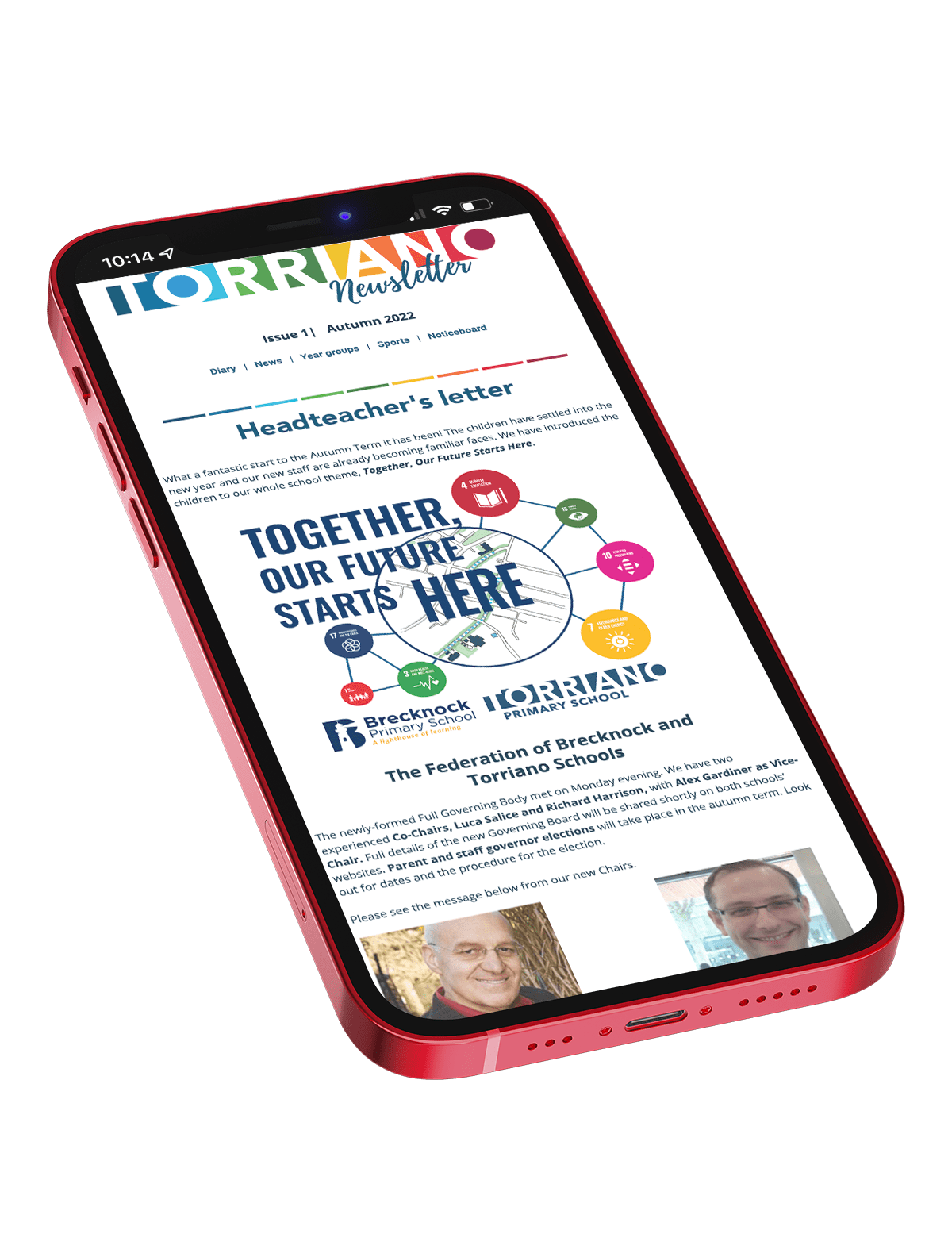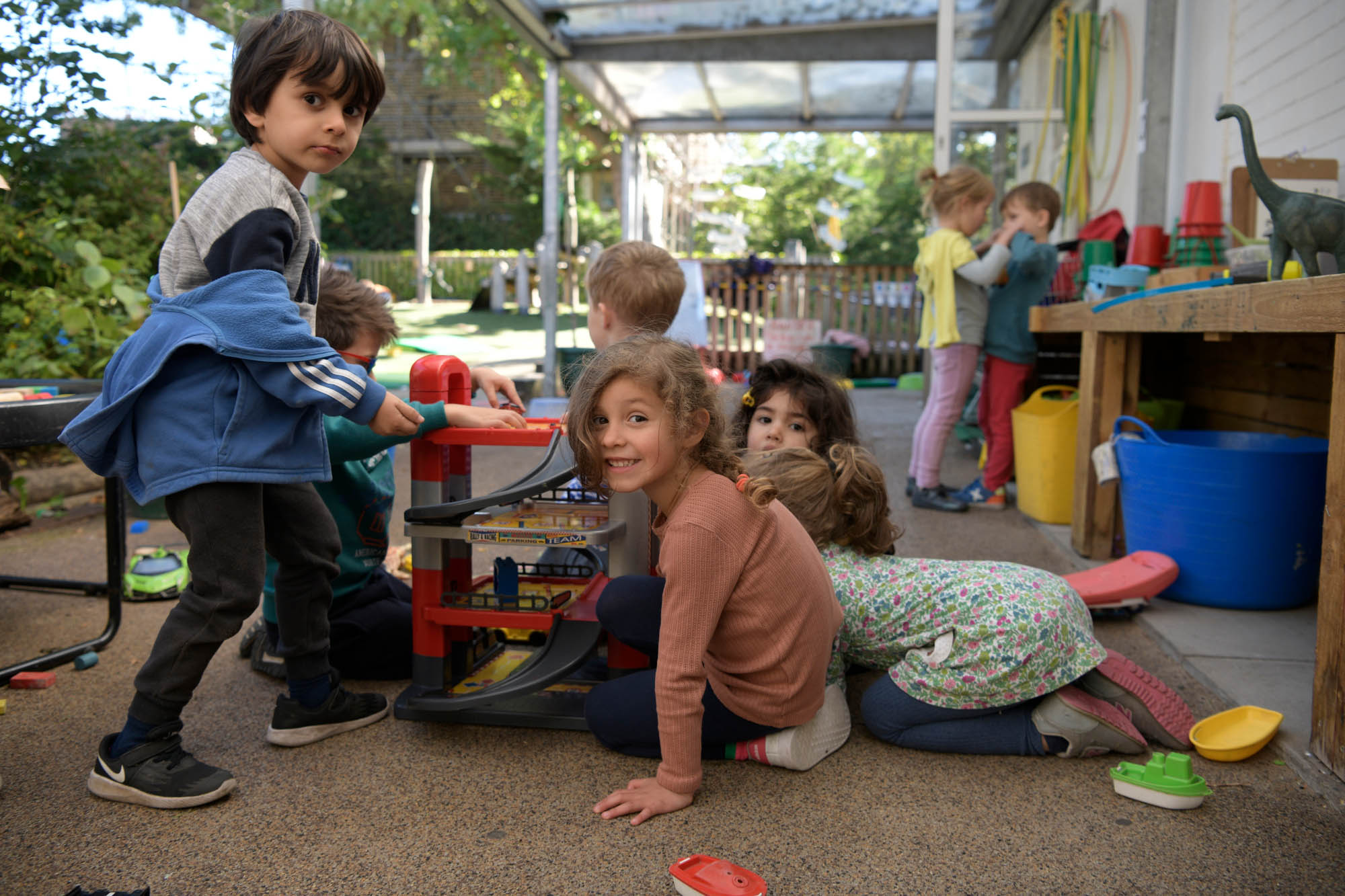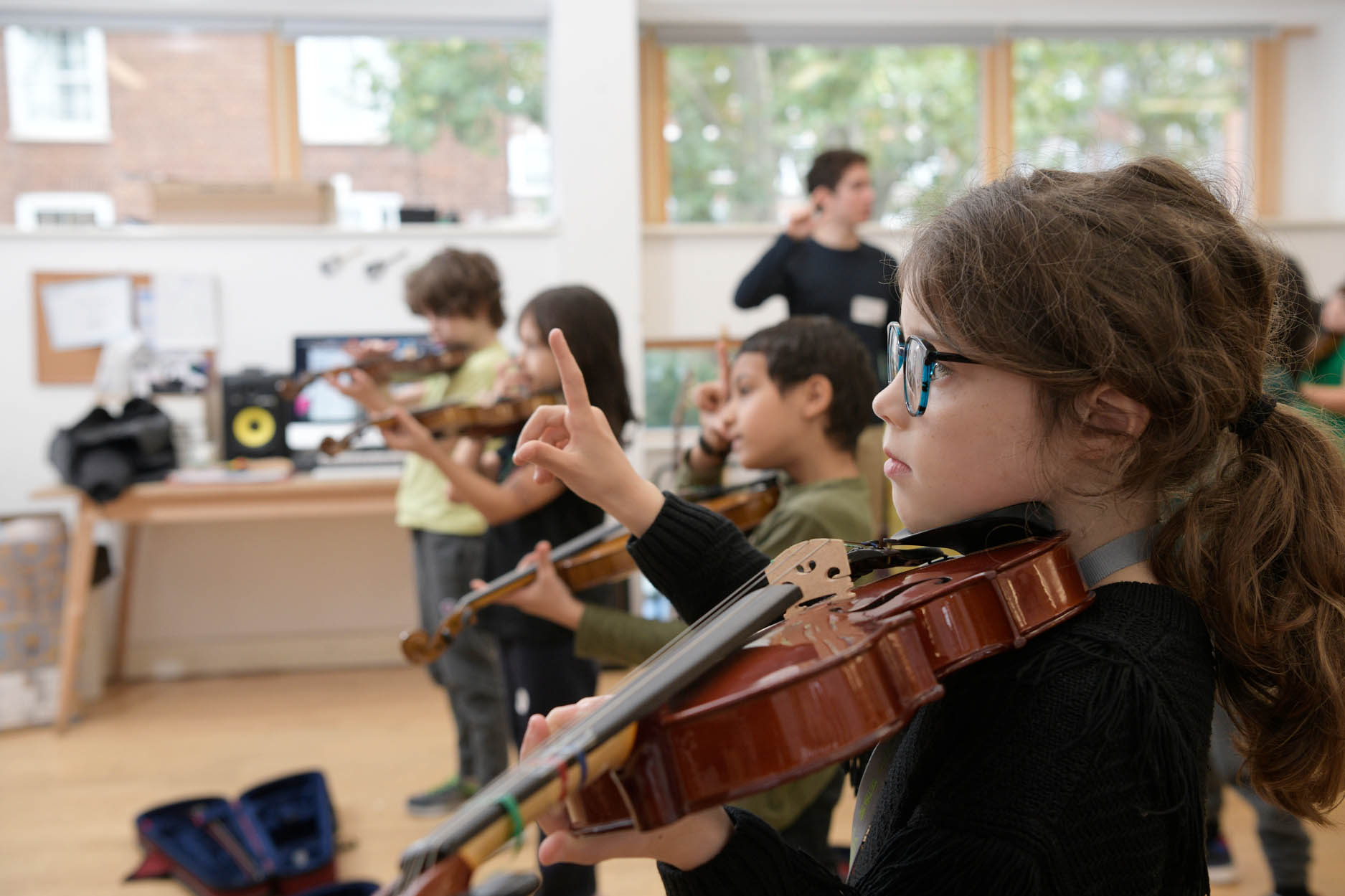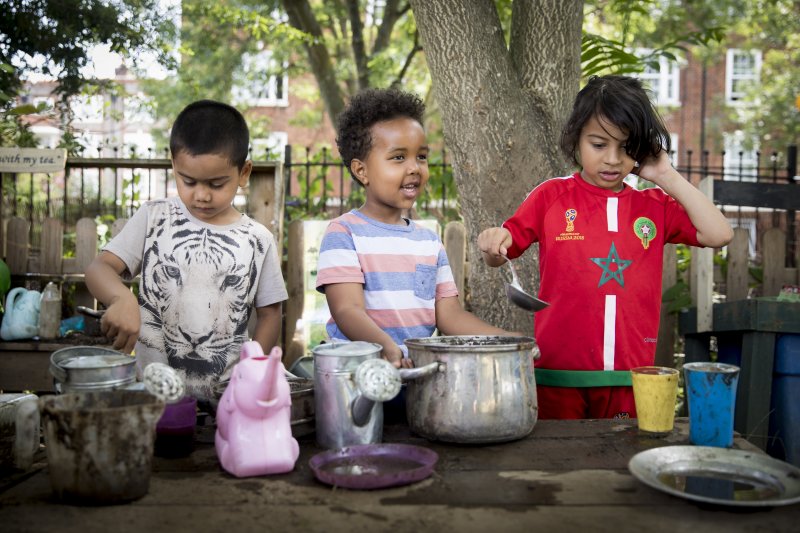SEND Information Report
What school leaders and governors do to make sure that all children feel welcome, included and achieve their potential?
Our Director of Inclusion has overall responsibility for SEND and Inclusion. This means that we regularly discuss SEND issues in Senior Leadership Team meetings. We keep support for children with SEND under review.
Our Director of Inclusion also manages the inclusion team. They plan the day to day provision and programmes of support for individuals and small groups of pupils with SEND.
The inclusion team keeps a list of children we identify as having a SEND.
She also keeps a record of the provision* of all the different ways that we provide extra support (for example, support for reading, communication and maths) for children with SEND.
A child’s provision can also be found within their My Plan document. This document is also a record of short-term targets, which we review termly.
We carefully monitor the progress and well-being of children with SEND and the quality of our provision, including teaching and support. For example senior leaders observe lessons and hold discussions with teachers and support staff.
If something is not working well, we change and improve our provision. We make sure that support is well-matched to a child’s needs. We also make sure that the provision is well researched and effective.
The Governing Body* challenges us to make sure we constantly improve the quality of provision for children with SEND and the outcomes that they achieve.
We have several parents on the governing body and one of their roles is to represent the views and concerns of all parents, including those with children with SEND
We have a Governor who takes a particular responsibility for SEND matters. She meets with our inclusion team regularly and makes visits to classrooms looking at learning and teaching.
We fully involve our Governors when we review and revise our SEND policy and our SEND Information Report at the end of each school year.
How do we develop the skills, knowledge and expertise of Torriano staff?
All staff, including Teaching Assistants, have regular training and guidance to meet the needs of our children. Our Director of Inclusion has a responsibility to arrange and provide this training.
We have regular training opportunities each term where we make sure that teachers and TAs;
- have an awareness of the different special educational needs and disabilities of children in our school
- are able to plan and teach/support lessons which meet the needs of all children
- understand the social and emotional needs of children with SEND
Every year we undertake an audit of staff training needs which includes knowledge and expertise about different SENDs.
Our Staff Handbook* provides written guidance about the different SENDs in our school. The Glossary provides a brief explanation of each area of need:
- Communication and interaction*;
- Cognition and learning*;
- Social, emotional and mental health* difficulties;
- Sensory and/ or physical needs*
We know that children may have a range of needs.
We provide regular staff briefings on the procedures set out in our SEND policy and make this policy accessible for all staff.
We provide/arrange training for all of our Teaching Assistants who are working with children with particular SENDs. This may include training in Attention Autism, Lego Therapy, Makaton, Handwriting, OT support and Phonics.
We provide specialist training for Teachers and Teaching Assistants who support children with the most complex needs.
Members of our inclusion team also attend training sessions run by national and local organisations, to ensure their knowledge and understanding remains up-to-date.
We use the eight national Teaching Standards* to develop the knowledge, skills and confidence of all of our Teachers as part of their professional development. Our Teaching Assistants also have professional standards which are monitored throughout the year.
What do specialist services do to support the progress and well-being of children with SEND?
Teaching and support staff work closely with relevant members of specialist services which provide support for our school. The services which are working in our school this year include:
- Educational Psychologists*
- PLSS (Robson House)
- The Camden Hearing Impairment service*
- The Camden Visually Impairment service*
- Occupational Therapists*
- Camden Language and Communication Service*
- Camden Physical Disability (PD) Outreach Service*
- The CAMHS Team
- MOSAIC – supporting children with complex needs*
- Social Services*
- Health visitor/school nurse*
The glossary at the end of this document explains what each of these teams does.
These services provide a range of support including:
- working one to one or in small groups with children
- providing training for teaching and support staff
- helping us to assess needs, plan next steps and review progress
Each service has referral and eligibility criteria* – this means that service support is targeted at children with higher levels of need. More information about these services can be found on Camden’s Local Offer website http://www.localoffer.camden.gov.uk/.
We will always involve you in any decisions about whether your child has a special educational need and the best ways to provide support. If your child requires these services we will involve you in the process at every stage. We will seek permission from you to make any referrals, and explain these processes fully.
How do we identify and assess children with SEND?
Our starting point is to meet with parents/carers in the summer term before children start school. We know that parents are the first educators of their child and we need their knowledge to plan effectively.
We will also plan careful transitions for children starting at Torriano Primary School. Often our staff will speak with your child’s previous teacher before your child joins our school.
We ask whether parents/carers have any concerns about their children, or if their child has any additional needs. This helps us to plan how we will support their child once they start school.
In addition, we assess all children in the first half term in our school through careful and sensitive classroom observation and an early review of progress.
We also listen to children to find out how they are settling in to school.
We continue to assess and monitor all through the child’s time in school so that we can look out for any special educational needs that might arise later on.
We take great care to establish whether lack of progress is because a pupil has English as an additional language (EAL)*, for example by talking to the child (and parents) in her/his home language.
We also work with specialist services , for example Educational Psychologists and Speech Therapists. They can provide expertise in finding out the type and range of a child’s needs.
We follow Camden’s guidance for the identification of SEND.
We are committed to personalised planning and regular assessment/review cycles to make sure that your child makes progress.
You can see more details on how we identify children with SEND in our SEND policy.
How do we review your child’s progress?
It is very important for our school that ALL of our children enjoy success and achievement and make good progress in learning.
We use the information we have about each child who has been identified as having SEND to plan a personal programme of SEND support. This is your child’s My Plan and will include termly outcomes (targets). It will be reviewed at least termly and a copy will always be sent to you.
We develop this in partnership with parents and the child and will agree outcomes during our termly structured conversation meetings with parents.
Your child’s My Plan will include short term outcomes (targets) and will describe how we will support your child to achieve these targets.
Once a term we review in school how well all children, including those with SEND, are progressing. We call this our Pupil Progress Meeting.
We will arrange a termly structured conversation meeting with parents of children with SEND to discuss how well they have progressed. We will agree new targets and sometimes think of different ways of supporting, for example, a small reading group with a trained member of staff or other interventions.
We make sure that parents/carers know the next steps for learning for their child.
We will report formally once a year on the progress of all children, including those with SEND and for some pupils we will provide more frequent reports.
How do we make sure that teaching and support help your child to learn and make good progress?
We know that high quality teaching and well-matched support will make a big difference to the progress of children with SEND.
Making sure that this happens in all classrooms is one of the most important things that our school leaders do.
We make sure that all Teachers and Teaching Assistants have a clear understanding of the learning needs of the children in their class.
Torriano Primary School leaders , including the Director of Inclusion, work closely with teachers and support staff to provide effective teaching and support for children with SEND in a variety of ways. These include:
- careful planning which ensures that adaptive teaching supports all children and they are able to make progress
- supporting the class teacher to take full responsibility for the learning and progress of all children
- using a wide variety of teaching approaches, including guiding learning through demonstration; providing visually supportive material
- providing a stimulating, rich and interactive classroom environment
- using regular, clear and rigorous assessments that help teachers to track pupils’ progress and identify gaps in their understanding
- using our marking policy to make sure that children know how to improve their work and respond to feedback from their teachers
- providing additional adult support from well-trained and well supervised Teaching Assistants
- making available specialist equipment and digital technology to support access and participation in learning
We help all children to develop their skills as learners – and to persevere when they find learning difficult.
How do we ensure children with SEND enjoy a broad and balanced curriculum?
We provide a curriculum that is broad, balanced, motivating and accessible to all children.
We want our exciting curriculum to be one of the many reasons our children love coming to school!
We work hard to ensure that all of our children achieve in lots of different ways as well as academic learning – for example, in drama, sport, music, dance, showing leadership and taking on responsibilities.
We encourage children with SEND to play a full part in the life of our school. Many of our children with a special educational need have extra responsibilities and taking such roles helps them to communicate more confidently with other children.
We arrange educational visits and journeys and make sure that all of our children can take part. We complete a risk assessment* and when necessary make reasonable adjustments* to plans and arrangements to make sure that all children can attend.
Your child may access specialist interventions* to accelerate their progress in, for example, reading, writing and mathematics. We choose these interventions after looking carefully at research.
These sessions run for a limited time. Some may be only 6 weeks, frequent and short. For example, two or three twenty minute sessions a week. They are well taught by a trained Teacher or Teaching Assistant.
Our inclusion team monitors the quality and effectiveness of these interventions every term. For example, we measure a reading level at the start of a reading intervention and then assess progress over time and levels of attainment. If a child is not making sufficient progress and/or is falling short of expectations, we will consider other forms of support in discussion with you and your child.
We also adapt the curriculum to include children with SEND, for example:
- Providing quiet time out for a student with emotional needs
- Providing an individual visual timetable* and clear explanations of tasks for children with communication needs
- Providing assistive technology (including where necessary Augmentative and Alternative Communication*) to ensure effective communication
Additional staff provide support for learning in the classroom and sometimes in small groups away from the main part of the lesson for a short period of time. These staff include:
- Teaching Assistants
- Specialist SEND teacher
- Specialist Reading Volunteers
- 1:1 maths/literacy tutors
How we make sure that our school and classrooms are safe, accessible and stimulating?
We work hard to make sure that our school building and all classrooms are safe, stimulating and accessible.
We aim to make lessons varied, stimulating and highly visual to support children with a variety of learning needs.
We have an Accessibility Plan* though which we are making improvements to the school environment over time. For example, we aim to host many events in our downstairs hall or our lift-accessible gatehouse to make sure that everyone can attend.
Specialist teams, for example Physiotherapists, Occupational Therapists and the Camden Hearing and Visual Impairment Support Service provide guidance, advice and equipment for a child with particular access or support needs.
We have a range of equipment designed to support the development of children’s coordination and motor skills.
For some children with special educational needs, we provide specialist equipment including digital technology such as iPads and laptop computers.
How do we work in partnership with parents and carers?
We know that the active involvement of parents/carers in supporting the education of their child is one of the most important factors in ensuring a child’s success and achievement.
We know that parents are the first educators of their child and that we need their knowledge to plan effectively
From our involvement in the Achievement for All project we have developed a style of working with parents/carers – for example, through a regular Structured Conversations which places parents/carer at the heart of decision-making about their child.
We will always involve parents and children in planning and reviewing progress.
We make every effort to communicate clearly and regularly with parents and carers of children with SEND about, for example:
- how we support their children;
- their achievements and their well-being and.
- their participation in the full life of our school.
We will also help and advise parents/carers on how to help their children make progress at home, for example in mathematics and reading.
We welcome and value feedback on how well we are working with our parents.
We try to communicate in plain English and have several bi-lingual staff who can offer translation and interpretation services in Urdu, Somali, French, Arabic. With notice, we can arrange a translator in other languages.
How do we listen and respond to children with SEND?
We know that the only way we really find out if a child is happy , feeling safe and taking part in the full life of our community is for the school to be certain that it hears the voices of children, especially those most vulnerable.
We make sure that we listen to children in our school and respond to what they say in a number of ways, including:
- clear policies and systems to support children in expressing any worries or concerns that they have: giving children the right to choose a preferred adult to talk to
- talking to children and/or groups of children after lesson observations to understand their experience of the lesson
- inviting children to make personal contributions to their Annual Review meetings, for example, though a video montage or presentation.
- doing an annual pupil questionnaire on pupil voice* – giving children their say
- encouraging children to respond to feedback given through developmental marking
- agreeing with them individual targets
- providing visual support to help children to communicate with us
- making sure that our school council is inclusive and represents the whole of our community
- ensuring that our safeguarding procedures are strong and that all staff are well trained
How do we support children with transition when joining or leaving our school?
When a child joins Torriano, a member of staff will collect information and records from the child’s previous school and from the family. We always encourage parents to visit our school before the transition. We plan carefully to help children to feel safe and to settle in. We arrange transition events so children can meet their new teacher and support staff and also so the school becomes a familiar place.
When a child moves up to the next class, we organise class hand-over meetings where teachers and support staff make sure that the new teacher and Teaching Assistant (TA) have a clear understanding of the needs of all children.
We also provide an opportunity for parents and their children with SEND to meet the new teacher and TA before the start of the school year.
Parents and children will be able to visit the new classroom and get to know the new adults who will be teaching and supporting them. We create individualised transition booklets with familiar staff photos to help prepare children for transition.
When a child comes to our school in the middle of a term, we plan a range of support – depending on the particular needs of each child. This may involves a team of children to help her/him settle in to the new class and provide help to find their way around the school.
Other transitions may include:
Primary to Secondary
- Support for move to new building and curriculum
- Support for friendships and well being
- Planning support for learning
- Attend induction days
- Hold transition meetings with parents
- Invite visits to our schools
- Secondary SENDCO attends Year 6 Annual Reviews
Mid-term admissions
- Support for coming to a new school – e.g. learning, friendships and well-being
- Meet pupil and parents
- Assess needs
- Go through classroom routines and weekly timetable
- Tour the school
- Offer support from our Pastoral Care Leader
How do we support children’s health and general well-being including safety, attendance and behaviour?
nThe school takes the personal development and well-being of children very seriously.
We know that children are unlikely to flourish unless they are developing positive relationships, feel safe and are adopting healthy lifestyles. Our Rights Respecting ethos is embedded in our curriculum. These include the rights to be safe and healthy.
We also know that some children with SEND are particularly vulnerable when it comes to making and keeping friendships. We offer a variety of support with this including targeted playground activities for vulnerable children, a playground squad and Pastoral Care Leader support.
We address many of these issues in our PHSE (Personal Health and Social Education)* curriculum. We also offer support through programmes such as Zones of Regulation, Circle of Friends and Bright Minds, Bright Moods. These programmes are supported by our colleagues at PLSS (Robson House) and the Educational Psychology Service.
We encourage children to develop confidence and resilience* through teaching, social play opportunities and through more targeted support where this is needed.
Our positive behaviour system encourages children to manage their own behaviour. As a result of our commitment to the UNCRC* there is no need for school rules. The children in each class develop their own Class Charters which become a point of reference for the class and once signed by the teacher, assistants and pupils it signifies a joint undertaking which binds everyone together. We also have a playground charter to guide children to play well outside.
We have a zero tolerance of bullying and talk about all aspects of bullying in assemblies and lessons: we have very little bullying in our school but when it does occur we work with the children involved to make sure that it does not happen again.
We provide expert help for any child who is experiencing any difficulties with behaviour or relationships from well-trained staff. We will always consult and involve parents in the decision to offer this support. Our specialist help and some of their services includes:
Pastoral Care Leader:
- emotional support
- playground provision
- targeted 1:1 and group social skills
- in class support for vulnerable children
CAMHS:
- support with emotional health and wellbeing
- advice on family therapy
- 1:1 child psychotherapy
PLSS (Robson House):
- behaviour support
- positive handling planning
- de-escalation strategies
- staff training and workshops
Educational Psychology Service
- behavioural support
- bereavement services
- assessment of emotional and learning difficulties
- staff training and workshops
We have a Playground Squad where selected children help other children in the playground to join in games and activities and “mediate” when there are arguments and disputes.
We make sure that our school council is representative of the population of the school – we currently have two children with SEND serving on the Council – and we encourage and support children with SEND to take on whole school responsibilities, for example, as Eco-Champions, Health Champions and Career Kids.
We have an up to date policy on how we manage medical needs . See our website for further information.
A senior leader has responsibility for Health and Safety concerns across the school.
Children with serious medical needs have an Individual Health Care Plan which sets out
- The medical condition and resulting needs, e.g. medication + treatment; environmental issues
- Support for educational and emotional needs
- Who provides support, their role and training and who needs to be aware
- Arrangements for working with parents/carers
- Support for long term absence
- Support on school trips and journeys
- Emergency procedures
When a child with medical needs is absent long term from school we make sure we keep her or him in touch with learning and friendships.
Our school nurse provides health checks for children at various times in their schooling. She also runs training for staff on health matters including Epipen use.
We support all children to attend school regularly, for example thorough providing an enjoyable and stimulating curriculum and through home support where this is needed. Our policy on attendance describes why and how we promote high attendance for all children. We use visual incentives and provide regular updates so our children can see current attendance information. Examples of this can be seen on our website.
We provide specialist support and up to date training for staff on safeguarding, keeping children safe and meeting children’s emotional needs. Our volunteers are also provided with this training.
All of our staff and governors have an up-to-date DBS * check.
How will we know that we are successful?
We constantly monitor important evidence for success – we take action where we are not successful
These are some of the things we look at to make sure we are meeting the needs of children with SEND
- Their academic standards and good progress
- Their behaviour
- Their school attendance
- Their involvement in activities, visits and clubs
- Their involvement in the full life of the school
- Destinations and smooth transitions. For example, feedback from secondary/infant schools
- Parent feedback or complaints
We also want to understand the experience of children with SEND so we regularly think about and discuss with children:
- Their sense of inclusion
- Positive attitudes to self, peers and school
- Their personal resilience and confidence as learners




